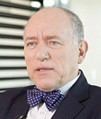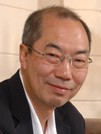About the Editors
Editors-in-Chief
Gerry Melino, MD, PhD, DSc, University of Rome, Italy and DZNE, Bonn Germany
 Gerry Melino is Professor of Biochemistry at the Faculty of Medicine, University of Rome "Tor Vergata" and also at DZNE in Bonn, Germany. He is member of the Academia Lincei as well as of the Academia Europaea. For 19 years he was programme leader at the Toxicology Unit of the Medical Research Council, Cambridge University, UK. His scientific interest focuses upon programmed cell death in cancer and skin. Gerry's major work investigates the p53 family members – p63 and p73. The molecular events driven by DNA damage to elicit the function of p63/p73 is investigated in vitro (transcriptional targets, proteosomal degradation, inhibitors) as well in ad hoc transgenic animal models.
Gerry Melino is Professor of Biochemistry at the Faculty of Medicine, University of Rome "Tor Vergata" and also at DZNE in Bonn, Germany. He is member of the Academia Lincei as well as of the Academia Europaea. For 19 years he was programme leader at the Toxicology Unit of the Medical Research Council, Cambridge University, UK. His scientific interest focuses upon programmed cell death in cancer and skin. Gerry's major work investigates the p53 family members – p63 and p73. The molecular events driven by DNA damage to elicit the function of p63/p73 is investigated in vitro (transcriptional targets, proteosomal degradation, inhibitors) as well in ad hoc transgenic animal models.
KEYWORDS: apoptosis; p63/p73; skin; DNA damage; transgenic animal models
Tak W Mak, BSc, MSc, PhD, University of Toronto, Canada
 Tak W. Mak is the Director of the Campbell Family Institute for Breast Cancer Research at the Princess Margaret Cancer Centre, and a University Professor in the Departments of Medical Biophysics and Immunology at the University of Toronto. Dr. Mak received his B.Sc. and M.Sc. degrees from the University of Wisconsin (Madison) and his Ph.D. degree from the University of Alberta. His postdoctoral work was performed at the Ontario Cancer Institute under the supervision of Dr. Ernest McCulloch. Dr. Mak's research interests center on immune cell recognition/regulation, molecular mechanisms underlying the survival and death of normal or malignant cells, as well as the role of inflammation in the progression of autoimmune disease and cancer. He is best known as the lead scientist of the group that first cloned the genes of the human T cell antigen receptor, a discovery that provided essential insights into the molecular basis of cellular immunity. In addition, Dr. Mak has devoted a large portion of his research to investigating the pathogenesis of cancer. In particular, he is interested in mechanisms of metabolic transformation in order to identify potential targets for novel cancer therapeutics.
Tak W. Mak is the Director of the Campbell Family Institute for Breast Cancer Research at the Princess Margaret Cancer Centre, and a University Professor in the Departments of Medical Biophysics and Immunology at the University of Toronto. Dr. Mak received his B.Sc. and M.Sc. degrees from the University of Wisconsin (Madison) and his Ph.D. degree from the University of Alberta. His postdoctoral work was performed at the Ontario Cancer Institute under the supervision of Dr. Ernest McCulloch. Dr. Mak's research interests center on immune cell recognition/regulation, molecular mechanisms underlying the survival and death of normal or malignant cells, as well as the role of inflammation in the progression of autoimmune disease and cancer. He is best known as the lead scientist of the group that first cloned the genes of the human T cell antigen receptor, a discovery that provided essential insights into the molecular basis of cellular immunity. In addition, Dr. Mak has devoted a large portion of his research to investigating the pathogenesis of cancer. In particular, he is interested in mechanisms of metabolic transformation in order to identify potential targets for novel cancer therapeutics.
Dr. Mak has published over 800 peer-reviewed research papers and holds many patents. His many accomplishments have been recognized by the scientific community through numerous prestigious awards and honours, such as the, Emil von Behring Prize, Gairdner International Award, King Faisal International Prize for Medicine, Sloan Prize, and Novartis Immunology Prize. He is a Fellow of the Royal Society of London, a Foreign Associate of the National Academy of Sciences (USA), an Officer of the Orders of Ontario and Canada and a Fellow of American Association for Cancer Research Academy (USA).
KEYWORDS: T cell activation, cell signalling, apoptosis, cancer, microarray, tumour suppressors, immunology
